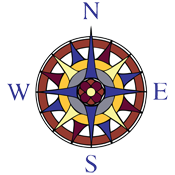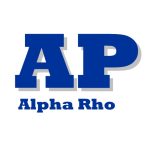
Alpha Rho, National Homeschool Honor Society 2025-26
Grades: 8th-12thDay: Fri
bi-weekly
Pay annual member dues here. For more information on Alpha Rho, the Compass chapter of Eta Sigma Alpha, the National Homeschool Honor Society, see the chapter website. Note that there is an application and acceptance process before a student can pay chapter dues online. Chapter dues are $35.00 for enrolled Compass students, and there is a $2.00 credit card convenience fee for those paying online.
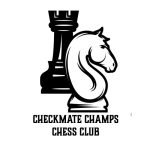
Checkmate Champs Chess Club Membership 2025-26
Grades: 2nd-8thDay: Thu , 29 weeks
weekly
Sign up for the 2025-26 Checkmate Champs Chess Club. This is an afternoon club for homeschooled students in 2nd-8th grade that meets each Thursday from 3:00 pm- 4:00 pm for chess play. Compass students are asked to enroll and pay a $20.00 for club dues including for a club t-shirt. This is a one-time fee* for the 2025-26 year. For more information, see the club webpage. Activity fees are non-refundable.
*Note: 2024-2025 members should check their family account for a discount code to use when signing up. This will deduct the cost of the t-shirt from this registration.
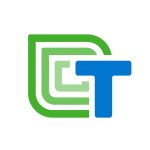
Code for a Cause: Technovation Team for Girls
Grades: 7th-12thDay: Fri , 26 weeks
weekly
Imagine a phone app that could quickly reunite lost pets, connect the poor with resources that they need, or report a problem in the community! Code for a Cause is the Compass-based Technovation hub where middle school and high school girls will participate in the "world's largest technology entrepreneurship program for girls." Each year, Technovation teams solve real world problems through technology that they develop!
Through Technovation, girls work with women mentors, identify a problem in their community, develop a mobile app, and launch a startup. Since 2010, 140,000 girls around the world have developed mobile apps and small businesses to solve problems ranging from food waste and nutrition to women's safety, education, and much more. In this year-long program, girls will work in teams and learn the skills they need to change the world through technology.
First semester, the class will participate in team building activities and will be introduced to coding. Students will use Ozaria from Code Combat, a Python-based platform that applies stories and a gamified approach to teach the logic of coding and terminology. Once students understand these fundamentals, they will apply what they've learned in the PyCharm application outside of Code Combat's environment.
Second semester, students will form teams of 2-3 girls who will brainstorm and identify a community problem. They will propose a mobile app or AI solution to the issue and conduct market research to see if their idea is unique and feasible. Next, the team will begin developing an app following the Technovation curriculum using Python for the logic and Kivy for the Graphical User Interface. In class, girls will be coached step-by-step on the process of creating an interactive application. Finally, girls will learn how to brand their app, create a business plan, look at what it would take to bring the app to market and plan and record a pitch video for their app.
The weekly Technovation work sessions will be facilitated by an experienced Technovation coach and cybersecurity engineering student at GMU. In addition, there will be guest speakers spread throughout the semester talking on topics such as APIs, AI ethics, Marketing, Pitching to Investors, and more. Guest speakers in the past have had job titles such as CEO, Senior Cybersecurity Executive, Manager of Marketing and Communications, and Software Developer.
Participation in Technovation gives girls the confidence to pursue more computer science courses (70%) and the foundation to eventually major in computer science (26%). Technovation teams are in 100 countries, and the program is sponsored by Oracle, Google, 3M, Adobe Foundation, and others.
Level: All students will meet together, but student teams will compete in either Junior or Senior division depending the ages of the team members as of August 1, 2026: Junior Division is for girls ages 13-15, and Senior Division is for girls ages 16-18. In addition to the app and competition document, the Junior division has an additional submission of a User Adoption Plan. The Senior division has an additional submission of a Business Plan.
Workload: Students should expect to spend 1-2 hours per week outside of class.
Assignments: Will be posted on Teams classroom for students, and key reminders will be emailed to parents.
Assessments: Students will receive informal feedback throughout the project.
Lab/Supply Fee: A software fee of $50.00 is due payable to the instructor on the first day of class for access to Code Combat.
What to Bring: For this class, students should bring their laptop and charger. Chromebooks or Tablets cannot be used.
Non-Meeting Days: In addition to the scheduled days-off on the published Compass schedule, this class will not meet on 12/12/25, 1/16/26 or 5/15/26, plus one other date in both fall and spring to be announced.
Credit: Homeschool families may wish to count this course as a full credit in Technology or Career Exploration for purposes of a high school transcript.
Cryptids Club
Grades: 6th-12thDay: Tue
Crypids Club is for fans of "cryptozoology" meet to discuss and debate mythical (or real?) creatures sich as Big Foot, Yeti, Loch Ness Monster, chupacabra, and others. Club members will examine reports and news stories to consider the possibility of these popular creatures. This club is open to only enrolled Compass students, and there is no activity fee for Compass students to participate.
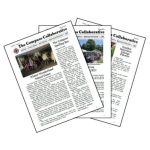
Extra, Extra! Non Fiction News-Writing
Grades: 6th-12thDay: Wed , 8 weeks
Be part of a team! Join the Compass Collaborative newspaper staff. The staff is a mixed-age team with students from 6th to 12th grade.
Students will learn about journalism and develop writing skills. They will craft effective articles, conduct interviews, and write reviews. Each quarter, writing assignments and responsibilities will be divided based on individual interests. Students will each contribute at least 2-3 items to the Collaborative edition each quarter including articles of their chosing (book critiques, movie reviews, field trip recommendations, short fiction, poetry, comics, jokes, tc) and assigned articles about happenings at Compass.
While research and data collection will occur outside of class, a portion of staff meetings will be dedicated to writing and editing. The newspaper advisor will use these sessions to demonstrate what constitutes 'good' writing. All staff members will practice editing skills to improve grammar, punctuation, and overall clarity and accuracy in their writing. Students will be informally paired for peer review and feedback on their writing.
All students register for the same class, and roles and responsibilities will be reviewed and delegated during the first meetings. Students should expect to work on assignments outside of class and will be expected to bring a laptop, notebook, and pen/pencil to each class meeting.

Homeschool Band: Advanced Beginner
Grades: 5th-12thDay: Mon , 15 weeks
weekly
Enjoy the camaraderie and cooperation of making music with others in a school band! Join the first homeschool band in the region at Compass. This section is for continuing beginner and advanced beginner musicians of brass, woodwind, and percussion instruments*
Percussion students will continue their skills on the snare drum and mallet instruments (such as glockenspiel and xylophone). Continuing and advanced beginner woodwinds students will play the flute or clarinet or alto saxophone. Continuing and advanced beginner brass will play the trumpet, trombone, euphonium, French horn, or tuba. All band students will practice audiation skills and will play both cooperatively in the full band group and in break-out groups for differentiated instruction by part, by instrument, or by proficiency.
Students in Band will meet together to continue to develop their skills on their selected instruments. To be considered for this section, students must have the following competencies on their chosen percussion, woodwind, or brass instrument:
--Minimum of 4 months of playing experience (or recommendation by instructor);
--A firm understanding of how to assemble and disassemble the instrument correctly;
--Demonstrate proper instrument care;
--Demonstrate correct posture, hand position, and embouchure (woodwinds);
--Be able to play Hot Cross Buns in B-flat Major;
--Be able to play at least one additional song in any key
Students will need to rent or purchase an instrument and accessories for the band. See the linked list by instrument. Furthermore, students are expected to practice their instrument and pieces throughout the week. 15-30 minutes most days is recommended.
For NEW students, there is a $33.00 supply fee due payable to Compass on/before the start of class for the "Do It! Play (a Band Instrument)" book and workbook and the sheet music songs used for the group band performance. RETURNING students will have a supply fee of $9.00 for sheet music.
Note: This is a 15-week program that does not meet on 2/2/2026.
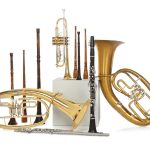
Homeschool Band: Beginning Winds
Grades: 5th-12thDay: Mon , 15 weeks
weekly
Enjoy the camaraderie and cooperation of making music with others in a school band! Learn your instrument and get ready to join the first homeschool band in the region at Compass.
Students in beginner winds will learn to play a woodwind [flute or clarinet (5th-12th grade) or alto saxophone (7th-12th grade only)] or brass instrument [trumpet, trombone, or euphonium (5th-8th grade) and French horn or tuba (7th-12th grade students only)]. They will learn how to hold their instruments with proper posture and hand position and correct embouchure (mouth position and blowing technique) for the instrument. Students will receive instruction on the parts of their instruments and how to safely, correctly, and independently assemble and clean them. Students will learn the fundamentals of music reading, and the group will practice short songs in Concert B-flat and Concert E-flat major (and their relative minors).
Students will need to rent or purchase an instrument and accessories for the band. See the linked list by instrument.
For NEW students: there is a $24.00 supply fee due payable to Compass on/before the start of class for the "Do It! Play (a Band Instrument)" book and workbook and group sheet music. RETURNING students: There is a $9.00 fee for sheet music due payable to Compass.

Homeschool String Ensemble
Grades: 4th-8thDay: Wed , 16 weeks
Homeschool musicians who play violin, viola, cello, or bass are invited to join this homeschool string ensemble! Musicians will have an opportunity to develop ensemble skills and enjoy the experience of practicing, playing, and performing as a group. Themusicians will work on several group songs each semester where they will improve musical literacy and learn to play in different keys as a group. During the final session of the semester, a concert will be held for friends and family.
This ensemble is intended for advanced beginner, intermediate, and advanced strings students who are concurrently enrolled in private lessons.
The instructor will provide the ensemble repertoires, and these arrangements will be specially composed to accommodate the range of abilities of all stringed players in the ensemble. Participants are expected to prepare and practice at home for at least 15 - 20 minutes per day. The cost of photocopied music is included.

Middle School Social Club
Grades: 6th-8thDay: Wed , 15 weeks
bi-weekly
Middle School Social Club is a bi-weekly meet-up for tweens/young teens in 6th, 7th, and 8th grade (minimum age 11). The group will alternate between indoor activities at Compass and outdoor activities at the nearby Hailey M Smith Park. Example activities in the past include: field day games, board games & card games, decorating mini pumpkins, painting canvases, making personal pita pizzas, and icebreaker activities. This club is open only to students who are currently registered in a Compass class. Activities and calendar will be announced by email to those who are enrolled.
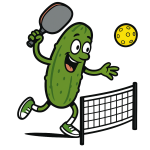
Pickleball Club
Grades: 1st-6thDay: Tue , 8 weeks
weekly
Welcome to Compass Pickleball Club, the ultimate club for kids who love to move, play, and laugh! Pickleball is one of the fastest-growing sports in the country, and for good reason-it's a fun mash-up of tennis, ping-pong, and badminton. Played on a small court with paddles and a wiffle ball, it's easy to learn, fast-paced, and full of energy!
Our club introduces kids to the basics of the game with exciting drills, team challenges, and friendly matches. Whether they're brand new or already know how to serve and smash, kids will build confidence, coordination, and teamwork-all while having a blast. With its quick games, silly name, and serious fun, it's no wonder pickleball is popping up in parks, gyms, and playgrounds across the country! Come join the craze.
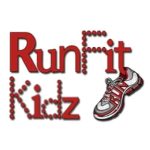
RunFit Kidz Club
Grades: 1st-8thDay: Wed , 8 weeks
RunFit Kidz is a fun, non-competitive co-ed program for mixed age students of all fitness levels. The program is designed to introduce a passion for fitness and running in a supportive group environment with emphasis on the proper mechanics of running, nutrition/hydration, pacing, and personal goal-setting. Each class session will include dynamic warm-ups, strength training, running technique activities and drills, cool-down stretching, and plenty of games, such as relays. The program is designed to help emerging runners build incremental endurance over 8 weeks, and the group's accomplishments are celebrated with a 5K (3 mile) celebration fun run/walk. For more details on the program, see the Compass webpage.
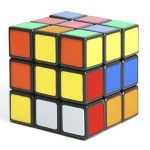
Speed Cubers Club
Grades: 3rd-6thDay: Wed , 12 weeks
weekly
Twist. Think. Triumph. Speedcubing goes far beyond solving the vintage 1980s kids' puzzle. It is silly, social, and strategic! Speedcubing turns a familiar cube into a challenge of strategy and speed, requiring focus, planning, and quick decision-making rather than trial-and-error solutions. Students hang out with friends in a fun, social setting while developing problem-solving skills, pattern analysis, and the ability to apply algorithms with increasing flexibility and precision.
This club will be facilitated by Compass high school senior Tiger Newman. Mr. Newman was the Program Director for the Loudoun County Public Library Summer Cubing Program. He attended several World Cubing Association (WCA) sanctioned cubing tournaments for 2x2x2 and 3x3x3 cubes and participated in the 2023 Virginia State Speed Cubing Championship. Come see Tiger solve a Rubik's Cube with one hand!
This club is open to only enrolled Compass students. Participants must sign-up and should bring a cube puzzle with them. This club will begin on Tuesday, January 27 if Compass is in session or on Tuesday, February 10 (if 1/27/26 is canceled due to snow/ice.)

